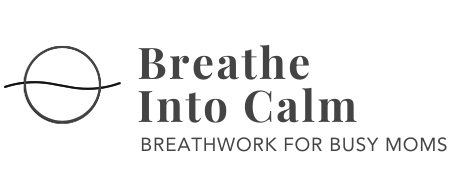
When my kids were young I spent way too many nights lying awake, replaying every parenting “mistake” I’d made that day. Did I snap at my kid over spilled juice? Check. Serve chicken nuggets for the third time this week? Yep. Feel like a complete failure? Absolutely. Turns out, there’s actually a name for what could have saved me from this exhausting cycle: the Good Enough Mom philosophy. British pediatrician Donald Winnicott coined this term back in the 1950s, and honestly, it’s kind of revolutionary. He argued that trying to be a perfect parent actually does more harm than good.
The parenting pressure we face today is insane. Between Instagram-perfect birthday parties, organic homemade baby food, and the expectation to be endlessly patient while also crushing it at work, perfectionistic mom burnout is practically inevitable. I’ve watched friends crumble under these impossible standards, and I’ve been there myself.
Here’s the thing though – embracing “good enough” isn’t about lowering your standards or being lazy. It’s about recognizing that your imperfections actually help your kids develop resilience, independence, and realistic expectations about life.
Table of Contents
ToggleAffiliate disclosure: some of the links on this site are affiliate links, meaning at no additional cost to you, I will be earning a commission if you click through and purchase.
Share this post:
Understanding the Good Enough Mom Philosophy
Donald Winnicott, a British pediatrician and psychoanalyst from the 1950s, came up with a concept that changed how many think about parenting. He watched countless mothers interact with their babies and noticed something kinda revolutionary – the moms who were doing the best job weren’t the ones trying to be perfect.
What is the Good Enough Mom Philosophy?
The good enough mom philosophy basically says that being a “good enough” parent is actually better than trying to be perfect. Winnicott observed that mothers who responded to their babies’ needs most of the time (not all the time) were raising healthier, more resilient kids. He figured out that babies need to experience small frustrations and delays to develop properly.
What does Good Enough Parenting look like in real life?
Here’s what good enough parenting definition actually looks like in real life:
Responding to your kid’s needs about 70-80% of the time (yeah, not 100%)
Making mistakes and repairing them instead of avoiding all errors
Letting your toddler struggle with their shoes for a bit before jumping in
Serving cereal for dinner when you’re exhausted
Missing a school event without spiraling into guilt
How does it differ from Perfect Parenting?
The contrast with perfectionism is pretty stark. Perfect parenting says you should anticipate every need, never lose your temper, always have organic snacks ready, and basically be superhuman. Nurturing parenting through the good enough mom lens? It says you’re human, you’ll mess up, and that’s exactly what your kids need to see.
The Science Behind ‘Good Enough’ Parenting
It turns out there’s actual brain science backing up why our parenting screw-ups aren’t the disasters we think they are. Neuroscience research shows that when we mess up and then repair the relationship with our kids, their brains literally develop better problem-solving skills. Dr. Dan Siegel’s work on interpersonal neurobiology found that the rupture-and-repair cycle (basically when you lose your cool, then apologize and reconnect) actually strengthens neural pathways related to emotional regulation. Kids whose parents never make mistakes? They don’t learn how to bounce back from disappointment or navigate conflict.
John Bowlby’s research on attachment theory doesn’t say we need to be available 24/7 or respond perfectly to every cry. What attachment theory actually supports is being consistently responsive, not perfectly responsive. The goal is a secure base where kids feel safe enough to explore independently. When I stopped hovering and let my daughter figure out that puzzle on her own (even though watching her struggle made me itchy), she developed confidence I couldn’t have given her by swooping in.
The maternal self-care benefits aren’t just feel-good fluff either. A 2011 study found that teaching women stress management techniques helped lower stress hormone levels (cortisol) in both mothers and their babies up to 18 months after birth. This suggests that managing stress can improve long-term health for both mother and child. When you’re running on empty, your stress hormones are literally making you less patient and more reactive.
The Dark Side of Perfectionism in Motherhood
Perfectionism in motherhood doesn’t just set an impossibly high bar—it quietly steals the joy from everyday moments. When we’re constantly measuring ourselves against an idealized version of motherhood, we miss the beautiful chaos unfolding right in front of us.
The pursuit of perfection creates a relentless inner critic that tells us we’re never doing enough. The homemade lunches aren’t Instagram-worthy. The playroom isn’t organized. We lost our temper during bedtime. This constant self-judgment doesn’t make us better mothers; it leaves us exhausted, anxious, and disconnected from both ourselves and our children.
Perhaps most damaging is how perfectionism models an unhealthy relationship with failure for our kids. When they watch us berate ourselves for every small mistake, they learn that errors are shameful rather than opportunities to grow. They absorb the message that love and acceptance are conditional on flawless performance.
Perfectionism also isolates us. We hide our struggles, convinced everyone else has it together while we’re barely keeping our heads above water. We miss out on the solidarity and support that comes from honest conversations with other mothers who are equally imperfect—and equally enough.
And the ultimate kicker? Research from the University of British Columbia shows that kids of perfectionist mothers actually develop higher anxiety levels themselves. They pick up on our stress, internalize our impossible standards, and start believing they need to be perfect too. When we’re constantly anxious about being the “perfect mom,” our kids don’t see a role model for healthy coping – they see someone who’s perpetually stressed and never satisfied.
Embracing Imperfection: Practical Tips from Experience
Self-compassion motherhood starts with talking to yourself like you’d talk to your best friend. When I dropped my kid’s birthday cake face-down on the kitchen floor thirty minutes before guests arrived, my first instinct was to spiral into “worst mom ever” territory. But I caught myself and literally said out loud, “You’re doing your best, and accidents happen.” That simple shift changed everything.
Here’s what actually works when you’re trying to ditch the perfectionism:
Talk to yourself differently. When you mess up (and you will), ask yourself: “Would I say this harsh crap to someone I love?” Probably not. So why are we so brutal with ourselves?
Setting realistic goals mom style means getting super specific about what matters today. I started writing down three things each morning – not twenty, just three. Like “keep everyone fed,” “read one bedtime story,” and “take a shower.” Some days the shower didn’t happen, and that was okay. The point is these goals were actually achievable, not some Pinterest fantasy version of motherhood.
Social support networks in parenting can be a lifeline when feeling overwhelmed. Joining a local mom group where everyone shares their struggles honestly—without Instagram filters or pretending—creates a space for real connection. Finding even one other parent who admits they’re winging it helps reduce feelings of isolation amidst the chaos.
Mindfulness and Breathing Exercises to Reduce Parental Stress
The benefits of mindfulness parenting are real. When you’re dealing with tantrums and homework battles, sitting still and “being present” sounds like some fluff out of a feelgood novel. But here’s what I’ve learned: mindfulness isn’t about achieving some peaceful state while your toddler colors on the walls. It’s about noticing when you’re losing control and having tools to bring yourself back.
The 4-7-8 breathing technique became my go-to stress reduction technique. You breathe in through your nose for 4 counts, hold for 7, then exhale through your mouth for 8. Sounds simple, right? And it is! It is simple, but it’s doable and it’s effective.
I started practicing this breathing exercise for moms during ordinary moments—waiting at red lights, standing in line at the grocery store. That way, when chaos struck, my body already knew what to do. The good enough mom in me doesn’t need perfect meditation sessions. Just 30 seconds of Intentional breathing can reset your nervous system enough to respond instead of react.
Learning to Let Go: Adaptive Coping Strategies
Cognitive reframing may sound complicated, but it’s really just about catching yourself in a negative thought pattern and asking, “Wait, is this thought even true?” For example, I used to freak out when my kid wore mismatched socks to preschool, thinking everyone would judge me as a terrible parent. But one day, I paused and realized, “Who actually cares about her socks?” It turns out, no one cared at all. This is an example of adaptive coping in motherhood—challenging those perfectionist thoughts before they ruin your entire day.
Here’s what actually works when you’re trying to let go:
Question the “should” statements running through your head (I should make homemade snacks, the house should be spotless)
Replace them with reality checks (store-bought crackers are fine, lived-in homes are normal)
Give yourself permission to prioritize what actually matters over what looks good
The Good Enough Mom Philosophy and Why Perfectionism Burns You Out becomes crystal clear when you start practicing acceptance. I remember the day I decided to let my daughter wear her witch halloween-costume to the grocery store instead of fighting about it (it was in June). She was happy, I wasn’t stressed, and we got our shopping done without a meltdown. That flexibility changed everything.
Improving maternal mental health isn’t about lowering standards—it’s about letting go of unrealistic expectations that were never helping you in the first place. The joy you regain when you stop trying to control every little thing? That’s the true gift.
The Powerful Gift of Being a Good Enough Mom
Here’s what really gets me excited about the benefits good enough mom philosophy brings to our kids. When we mess up and repair the relationship afterward, children learn something textbooks can’t teach – that mistakes don’t define you, and relationships can survive imperfection.
Kids raised by good enough moms develop what researchers call a growth mindset. They’re not afraid to try new things because they’ve watched us stumble and get back up. That’s resilience children actually need for real life, not the fake confidence that comes from watching someone pretend they never struggle.
The reducing burnout moms experience through this approach isn’t selfish – it’s strategic parenting. When I stopped trying to be Pinterest-perfect, I had energy left for what actually mattered. Playing board games at 8pm instead of scrubbing baseboards nobody notices. Reading an extra chapter because I wasn’t exhausted from maintaining impossible standards.
The good enough mom gives her kids permission to be human too. That’s the gift that keeps giving long after they’ve left home.

Conclusion
You know what? The most radical thing you can do as a mom is to stop trying to be perfect. Embracing good enough motherhood isn’t about lowering your standards—it’s about raising your awareness of what actually matters. Those Instagram-worthy moments? They’re not the ones your kids will remember. They’ll remember the mom who laughed when the cake flopped, who admitted when she messed up, who showed them that being human is perfectly okay.
Overcoming perfectionism burnout starts with one simple decision: to be kinder to yourself than you’ve been. That positive parenting mindset everyone talks about? It begins when you realize that your imperfections are teaching your kids something way more valuable than any Pinterest-perfect childhood ever could—they’re learning resilience, adaptability, and self-acceptance.
So here’s your permission slip (not that you needed one): Be the good enough mom. Mess up. Apologize. Try again tomorrow. Your kids don’t need perfect. They need you—flawed, tired, doing your best, and loving them fiercely through it all. That’s the real gift.
Leave a reply
Got any questions? Let me know in the comments below!








1 Comments
Liana
18/01/2026 at 5:57 PM
thanks for info.